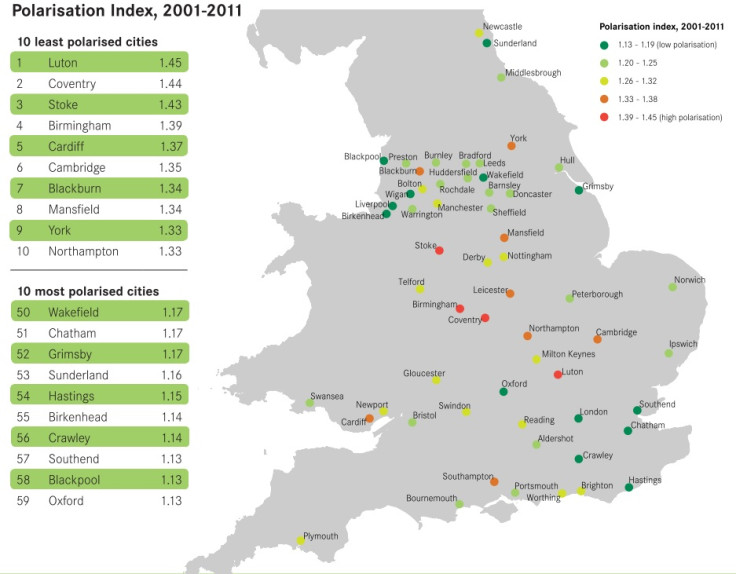Future UK Economy Under Threat Thanks to 'Shift Towards Insecure Employment'

The future strength and stability of the UK economy is "under threat" as there has been a long-term shift towards insecure, low-paying employment in many cities across the country, according to thinktank the Centre for Cities.
The report, which was supported by social research charity the Joseph Rowntree Foundation, revealed the number of Britons employed in low-pay positions in UK cities jumped by more than 750,000 between 2001 and 2011.
The study also found more than 20% of all employees are now working for low pay.
"There's no doubt that low-paying jobs have always existed, and that some UK cities continue to see significant growth in high-paid jobs," said Alexandra Jones, chief executive of the Centre for Cities.
"But what has changed over the past few decades is that, in many cities, the pathways to upward mobility have been severely eroded, as their jobs markets polarise and the stable jobs of the 'middle' begin to slip away."
The report warned cities in the north of England are particularly at risk.
In Sunderland and Hull, more than a third of all employment is now low paid, and in Blackburn, Grimsby and Hull, one in three workers earn less than two-thirds of the median national wage.
The study also found Coventry, Luton and Stoke saw the largest increases in the share of low-paid jobs between 2001 and 2011, coupled with the largest decline in the share of intermediate jobs.

In contrast, in London and the south east, the growth of internationally competitive knowledge-intensive industries means it is forecast that in ten years, 60% of all jobs in London will be in high-paid employment.
"Economically weak cities are home to increasing concentrations of poor working households, whilst two-tier economies are emerging in our more successful urban centres," said Julia Unwin, chief executive of the JRF.
"Job quality is a burning issue, particularly in low-skill, low-wage sectors such as retail, hospitality and care.
"As more cities start leading on growth strategies, they must respond as part of this work to the shifts occurring in the labour market."
The report recommended cities should encourage employment support organisations to work more effectively with local businesses, training providers and public sector organisations to match training and employment services with local business demand.
© Copyright IBTimes 2025. All rights reserved.






















